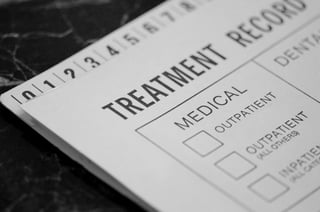 If you or a loved one is in need of rehabilitation due the effects of illness, injury, surgery or another serious medical event, one of the first decisions you will have to make in pursuing that care is whether to use outpatient or inpatient short term rehab services. So what is the most important factor to consider as you make this choice? Arguably, that would be which option is likely to yield the best long-term outcome. In other words, which can be expected to most effectively meet the essential, bottom-line goals of rehabilitation therapy – helping patients regain the best possible level of function and quality of life.
If you or a loved one is in need of rehabilitation due the effects of illness, injury, surgery or another serious medical event, one of the first decisions you will have to make in pursuing that care is whether to use outpatient or inpatient short term rehab services. So what is the most important factor to consider as you make this choice? Arguably, that would be which option is likely to yield the best long-term outcome. In other words, which can be expected to most effectively meet the essential, bottom-line goals of rehabilitation therapy – helping patients regain the best possible level of function and quality of life.
Outpatient and Inpatient Short Term Rehab: The Basics
To evaluate which option is most likely to produce the best long-term outcome in your case, you'll need to know some basic facts about what to expect from these differing approaches to rehabilitation therapy.
Should you choose outpatient therapy for your short term rehab needs, you will travel to therapy appointments as directed by your treatment plan. Generally, outpatient treatment plans will be focused on improving specific functional areas – mobility, language skills or hand function, for instance – according to individual needs. Typically, patients attend therapy sessions anywhere from one to five times per week, receiving an hour or two of therapy per visit. Services provided to each patient may include physical, occupational and speech therapy, among others.
Choosing inpatient short term rehab means a stay in a rehabilitation facility. The approach to rehabilitation therapy is much more intensive, comprehensive and tightly-coordinated than the average outpatient program. Patients are evaluated and treated by a physician-led multidisciplinary team of rehabilitation specialists, with members that may include rehabilitation physicians and nursing staff, physical, occupational and speech therapists, pain management specialists, nutritional counselors, social workers and case managers, among others. Patients receive a minimum of three hours of therapy daily and have 24-hour access to medical/rehab staff and rehabilitation equipment and facilities.
About Long-Term Outcomes
So which of these options is likely to yield the best long-term results? If functional deficits are fairly minor and medical needs are limited, outpatient rehab programs can often offer long-term results comparable to those of inpatient programs.
However, for the patient with significant levels of debility, multiple functional deficits and/or more complex medical needs, research shows that the more intensive, multidisciplinary approach of inpatient short term rehab programs can be a more effective option for achieving better short and long-term outcomes.
For instance, multidisciplinary inpatient intensive rehabilitation therapy in patients with Parkinson's disease was shown to significantly improve balance and gait, improvements that were still evident one year after treatment. Stroke survivors also benefit more from the inpatient rehab environment as compared to less intensive programs, achieving significantly higher levels of functional recovery and independence and better maintaining those improvements over the long term. Arthritis patients have also been shown to reap significant long-term benefits from intensive rehabilitation therapy immediately following hospitalization for severe flare-ups or joint replacement surgery, as have patients who suffer with chronic low back pain.
These studies represent just a few of the many instances in which better short and long-term results can be achieved via intensive inpatient short term rehab than is typically possible with the outpatient approach. The bottom line is this: While your decision on the type of treatment to pursue should be made with the help of your healthcare team, you can be fairly confident that if you need to overcome significant impairments, inpatient short-term rehab is your best bet in terms of achieving optimal long-term function, independence and quality of life.





